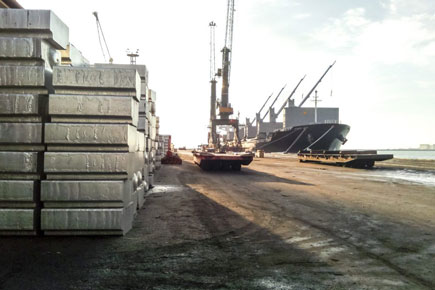
In March, in a bid to further strengthen the U.S. economy, President Trump imposed a worldwide 25 percent tariff on steel and a 10 percent tariff on aluminum. Initially, several of the U.S.’s major trade partners were exempt, including Canada, the largest exporter of steel to the U.S., as well as Mexico and the European Union. However, on June 1st, even these trading partners were no longer exempt. In addition, more recently, another $200 billion in tariffs on goods from China have also been imposed.
How Tariffs Drive Up Costs
According to ABC News, as of March 2018, the U.S. was the world’s largest importer of steel — importing as much as 36 million metric tons in 2017 alone. It was ranked fourth largest steel producer, after China, Japan and India.
When it comes to aluminum, in 2017, the U.S. imported approximately 5,046,000 metric tons and ranked only ninth in aluminum production. China is the world’s largest producer of the metal.
Due to the tariffs, U.S. steel and aluminum companies are now in a stronger position to raise prices. And this has paid off: According to the Wall Street Journal, in July, steel prices were 19 percent higher than a year ago. Aluminum prices had increased by 18 percent.
At the same time, companies that still opt to purchase imported goods have to pay the steep tariffs.

The Impact of Tariffs on Construction
All of this has caused sharp increases in the costs of a wide range of key construction materials in recent months, according to data from the Associated General Contractors of America. As contractors use up what they have in stock and are forced to purchase new inventory at higher prices, their profit margins will decrease — unless they pass the higher costs on to their clients.
Yet if they do this, it will have several consequences. First, as the American Institute of Architects point out, the higher prices of building materials — such as structural metal beams — will constrain the creative options available for a building’s design. In addition, clients may be forced to limit the scope of their construction and renovation projects in order to meet their budgets.
Decreased profit margins and a slowdown of projects are likely to have an adverse impact on the construction industry — even resulting in layoffs. In fact, more than construction 28,000 jobs could be at risk, according to some experts.
Choose the Right Hotel Renovation Contractor
In conclusion, the full impact of these tariffs — and any potential trade war — on the construction and hotel industry has yet to be seen. Nevertheless, considering the uncertainty facing the industry at this time, it’s more crucial than ever before to choose a hotel renovation contractor that’s proven to possess the experience and resources to make your project a success while always working within your budget.
For more information about how we can be of service, please contact us today.




